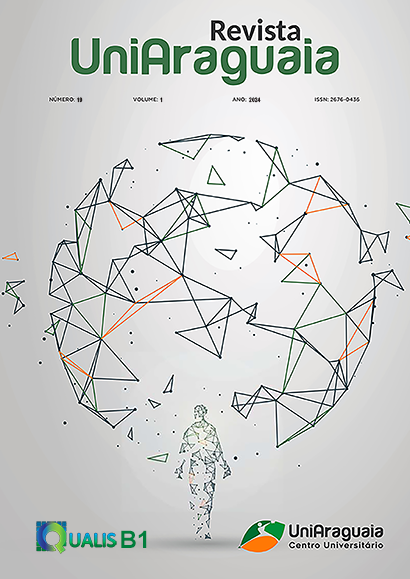BEHAVIORISMOS: ASPECTOS HISTÓRICOS E INFLUÊNCIAS FILOSÓFICAS
Keywords:
Behaviorismo Watsoniano, Behaviorismo Metodológico ou Mediacional/Neobehaviorismo, Behaviorismo Radical.Abstract
O Behaviorismo, compreendido como uma abordagem teórica da psicologia, apresenta três posições filosóficas sendo elas: o Behaviorismo Watsoniano/Metodológico, o Mediacional/Neobehaviorismo e o Radical. Estes se diferenciam em vários pontos e se convergem em outros. O objetivo geral do presente artigo foi identificar as mais relevantes influências e precursores de cada Behaviorismo, assim como suas principais características. Além disso, teve como objetivo específico aprofundar sobre o Behaviorismo Radical, visto que é a filosofia da ciência em vigor sobre os estudos do comportamento em psicologia. No Behaviorismo Metodológico, Watson torna o comportamento observável seu objeto de estudo sendo influenciado fortemente pelo objetivismo e mecanicismo, estudos em psicologia animal e a psicologia funcional. O Behaviorismo Mediacional/Neobehaviorismo adicionou a nova variável “organismo” ao estudo comportamental da proposta watsoniana, tendo como precursores Tolman e Hull. Por fim, o Behaviorismo Radical criado pelo psicólogo B. F. Skinner com uma proposta de visão monista divergindo do behaviorismo watsoniano têm como principais influências Darwin, Thorndike e Ernst Mach. Seu objeto e estudo é o comportamento compreendido como a relação entre o organismo e o seu ambiente, a qual é mutuamente influenciável.
Downloads
Published
Issue
Section
License
Copyright (c) 2024 REVISTA UNIARAGUAIA

This work is licensed under a Creative Commons Attribution 4.0 International License.
The copyright of the published articles will be transferred to the Uniaaraguaia Magazine, allowing its subsequent reproduction as transcription and with due citation of source. In the event of acceptance and before the publication of the article, the plaintiff (s) shall write a statement formally transferring copyright to the magazine.
The author may also print and distribute copies of his article, provided that he mentions that the rights belong to the Uniaaraguaia Magazine.
Author rights include the right to reproduce in full or partly by any means, distribute this article, including figures and photographs.
By submitting originals to the Uniaaraguaia magazine, the author or authors express agreement with the following terms:
a) Authors maintain copyright and grant Uniaraguaia magazine the right of first publication, with the work simultaneously licensed under the Creative Commons Attribution license that allows the sharing of work with recognition of the authorship and initial publication in this magazine.
b) Authors are authorized to assume additional contracts separately, for non-expiration distribution of the work version published in this magazine (eg publish in institutional repository or as book chapter), with recognition of authorship and initial publication in this journal.
c) Authors are allowed and are encouraged to publish and distribute their work online (eg in institutional repositories or on their personal page) to any point before or during the editorial process, as this can generate productive changes as well as increase the impact and citation of published work.

